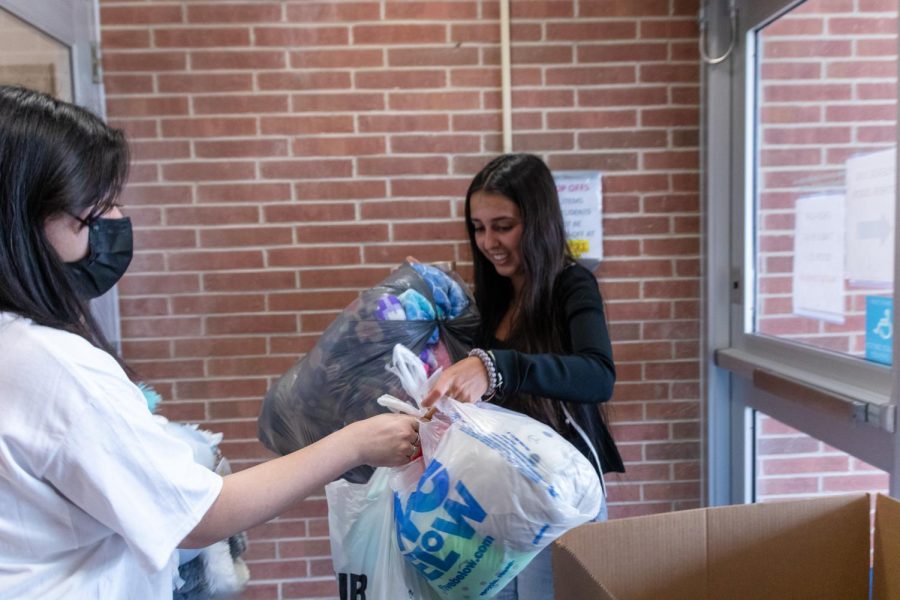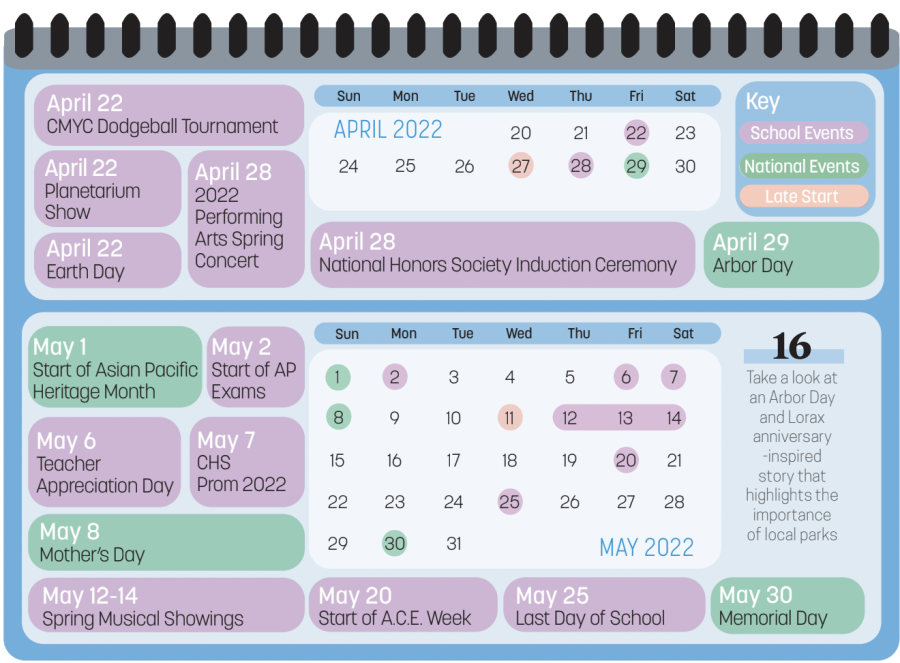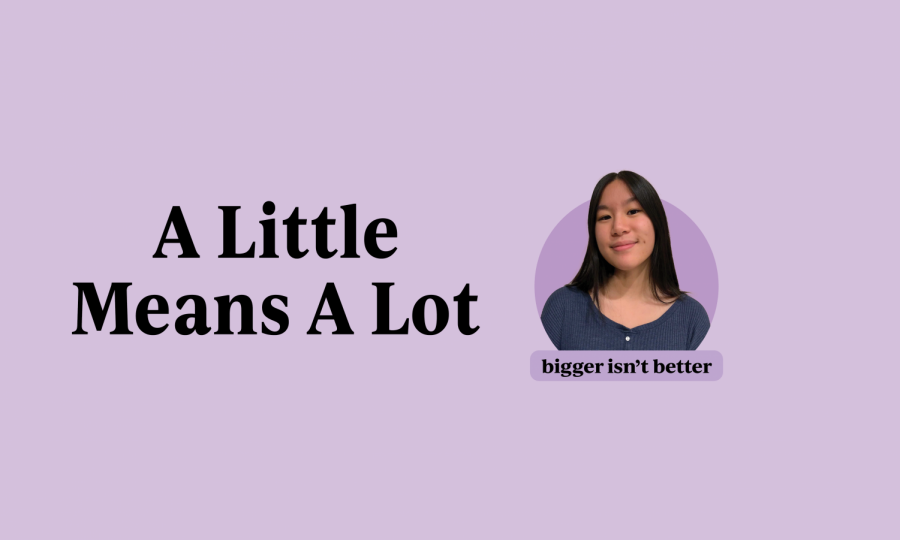A couple weeks ago, I was appalled when a student who sat next to me asked me before I even had a chance to sit down whether my parents were doctors or owned a Subway. Does the fact that they’re Indian limit them to having two choices in occupation? When I mentioned that my parents are neither and are actually software engineers instead, he continued by saying “That was my third guess.” I understand stereotypes are going to exist regardless of where we live, but it’s not reason enough to state a question the way he did. If he had been asking someone who wasn’t Indian, he most likely would have just asked “What do your parents do?” In a community that prides itself for its diverse community, people should not be so stereotypical.
Even in situations where I do no wrong, I feel like I have because I feel judged for fitting or not fitting a certain stereotype. That same day, I got told to “go make a sandwich” when all I had done was contribute to a group worksheet. It’s hard to feel like you can fit in when you are constantly compared to an image that you’re supposed to fit.
Labels will always exist, and people will constantly be categorized into them, but do they really mean anything? I fall underneath the label “Indian,” and while I am, how much does that define me? I’ve lived in America almost my entire life, but that doesn’t end up being reflected in my “label.”
Recently, actress Raven-Symone, in an interview with Oprah Winfrey, said, “I’m not an African American. I’m an American.” When Winfrey prompted Symone to explain her comment, Symone said she is an American despite her darker skin and her “nice interesting grade of hair.” She does not know her country of origin in Africa, but she said she knows her roots are in Louisiana, which makes her an American and therefore a “colorless” person. Since then, she has faced backlash from many who say she shouldn’t run away from her identity.
While Symone is definitely making a point about defying labels, it does not mean that she needs to completely forgo her African identity. She should embrace her identity as a whole. But part of the problem lies in our hands; We need to see beyond these labels and get to know a person before making assumptions.
A study conducted by the American Association for the Advancement of Science showed that children in the United States come to understand race and ethnicity concepts by the ages of 3 and 4. By around age 6, children become accurate at sorting people by ethnicity. At this point, they have also established firm views about blacks, women and other social groups. At around age 7 or 8, they understand that race and ethnicity do not change.
This shows that stereotyping starts at a very young age, before most kids can read or write. Studies have shown that we all unconsciously stereotype people all the time. It’s become a human instinct to sort information into mental categories.
There’s no cause for stereotyping, but it’s become a phenomenon. A lot of young children take after their parents, and stereotyping is one of the results. Open-mindedness is the key when dealing with stereotypes. We are all unique and that shouldn’t be lost. Kids need to taught to keep an open mind.
Next time you find yourself stereotyping someone, make a conscience effort to realize it, and then get to know them before you make assumptions. Negative stereotypes about racial groups bombard us every day in the mass media and it leaves a mark on us forever. But we can be influenced for the better. For all you know, they could be the polar opposite of what you expected.
I cannot ever imagine separating myself from who I am: an Indian American. There may be stereotypes that come with that, some good, some bad, but ultimately the choice is mine. I decide who I want to be. But it’s also our duty to make sure we don’t give others a standard they need to be above or below. There’s a whole story hiding behind those labels. Go learn about them.
The views in this column do not necessarily reflect the views of the HiLite staff. Reach Sriya Ravi at [email protected].



















![Joseph Broman, Mu Alpha Theta sponsor, grades tests for his honors precalculus/trigonometry class. Broman said, “I’m retiring from the Math Club next year and I’m just going to do Mu Alpha Theta so I can focus on that one and we can do more [speaker series] first semester.”](https://hilite.org/wp-content/uploads/2024/03/IMG_9502-1200x900.jpg)











![British royalty are American celebrities [opinion]](https://hilite.org/wp-content/uploads/2024/03/Screenshot-2024-03-24-1.44.57-PM.png)




















![Review: “The Bear” sets an unbelievably high bar for future comedy shows [MUSE]](https://hilite.org/wp-content/uploads/2024/03/unnamed.png)
![Review: “Mysterious Lotus Casebook” is an amazing historical Chinese drama [MUSE]](https://hilite.org/wp-content/uploads/2024/03/0.webp)
![Thea Bendaly on her Instagram-run crochet shop [Biz Buzz]](https://hilite.org/wp-content/uploads/2024/03/IMG_0165-1200x838.jpg)
![Review: Sally Rooney’s “Normal People,” is the best book to read when you are in a time of change [MUSE]](https://hilite.org/wp-content/uploads/2024/03/20047217-low_res-normal-people.webp)
![Review: “One Day” broke me for the second time, but this time it hurt worse [MUSE]](https://hilite.org/wp-content/uploads/2024/03/unnamed-8.png)
![Review in Print: Maripaz Villar brings a delightfully unique style to the world of WEBTOON [MUSE]](https://hilite.org/wp-content/uploads/2023/12/maripazcover-1200x960.jpg)
![Review: “The Sword of Kaigen” is a masterpiece [MUSE]](https://hilite.org/wp-content/uploads/2023/11/Screenshot-2023-11-26-201051.png)
![Review: Gateron Oil Kings, great linear switches, okay price [MUSE]](https://hilite.org/wp-content/uploads/2023/11/Screenshot-2023-11-26-200553.png)
![Review: “A Haunting in Venice” is a significant improvement from other Agatha Christie adaptations [MUSE]](https://hilite.org/wp-content/uploads/2023/11/e7ee2938a6d422669771bce6d8088521.jpg)
![Review: A Thanksgiving story from elementary school, still just as interesting [MUSE]](https://hilite.org/wp-content/uploads/2023/11/Screenshot-2023-11-26-195514-987x1200.png)
![Review: When I Fly Towards You, cute, uplifting youth drama [MUSE]](https://hilite.org/wp-content/uploads/2023/09/When-I-Fly-Towards-You-Chinese-drama.png)
![Postcards from Muse: Hawaii Travel Diary [MUSE]](https://hilite.org/wp-content/uploads/2023/09/My-project-1-1200x1200.jpg)
![Review: Ladybug & Cat Noir: The Movie, departure from original show [MUSE]](https://hilite.org/wp-content/uploads/2023/09/Ladybug__Cat_Noir_-_The_Movie_poster.jpg)
![Review in Print: Hidden Love is the cute, uplifting drama everyone needs [MUSE]](https://hilite.org/wp-content/uploads/2023/09/hiddenlovecover-e1693597208225-1030x1200.png)
![Review in Print: Heartstopper is the heartwarming queer romance we all need [MUSE]](https://hilite.org/wp-content/uploads/2023/08/museheartstoppercover-1200x654.png)























![Review: Ladybug & Cat Noir: The Movie, departure from original show [MUSE]](https://hilite.org/wp-content/uploads/2023/09/Ladybug__Cat_Noir_-_The_Movie_poster-221x300.jpg)

![Review: Next in Fashion season two survives changes, becomes a valuable pop culture artifact [MUSE]](https://hilite.org/wp-content/uploads/2023/03/Screen-Shot-2023-03-09-at-11.05.05-AM-300x214.png)
![Review: Is The Stormlight Archive worth it? [MUSE]](https://hilite.org/wp-content/uploads/2023/10/unnamed-1-184x300.png)






